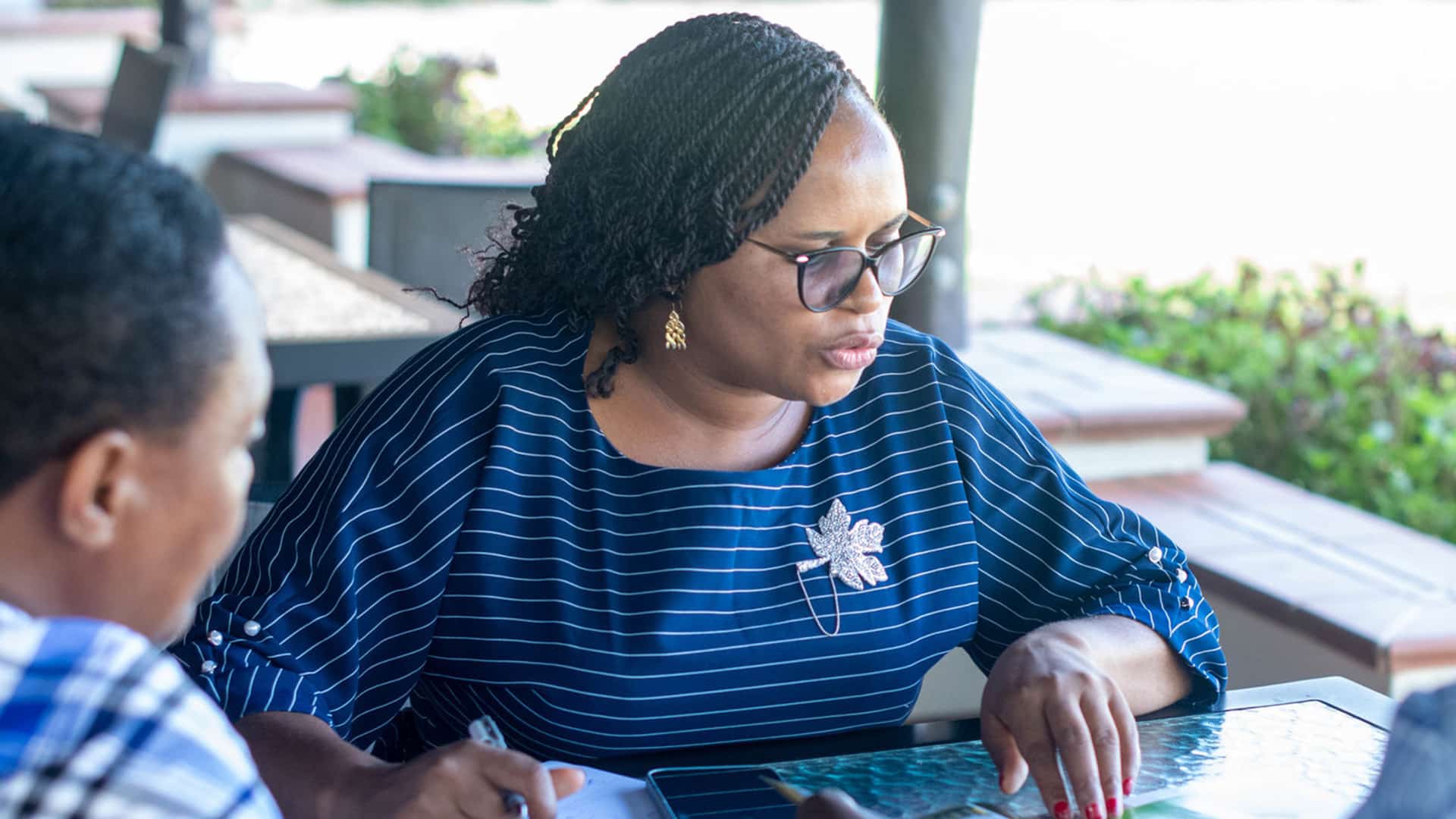In 2022, we published a blog post recounting a field study conducted in the Bugesera and Rulindo regions of Rwanda. Our ICR intervention aimed to interact with producers and stakeholders from fifteen agroforestry value chains to assess the business environment of these and gain insights to further develop them. Through this intervention, we partnered […]
The Union of the Comoros, an archipelago off the southeastern coast of Africa, has enormous potential to develop its economy. It is the world’s number one producer of ylang ylang essential oil, it harvests spices, vanilla and cloves. Furthermore, the beautiful island has incredible potential to further develop its tourism industry. In February 2023, […]
Meet Mariama, a highly qualified young professional, who has decided to work in the UK, instead of Ghana, the country where she was trained. Her diverse professional and voluntary journey has enabled her to hone her skills in customer service, business administration and community outreach. Despite her skills and experience, Mariama struggled to find employment […]
Botswana is looking to reshape its future. The longest uninterrupted democracy in Africa, the middle-income country has set out a transformational agenda that it hopes will see it achieve prosperity for all. Vision 2036 has an aim to turn Botswana into a high-income country by building an inclusive and thriving private sector, with a particular […]
Register for our upcoming event here Adeline, a young woman from Burkina Faso, wanted to get a job, but she faced the challenge of organising caring for her youngest children. Lots of other women from her area had taken up roles in a government-backed roadbuilding and construction programme and many of them, with no alternative, […]
In this transformative era of evolving policies and regulations that are part of the business environment, it is crucial to actively involve all segments of the population and especially young minds since the policies of today will impact how tomorrow looks. Quite often the reforms of policies and regulation are taken top-down excluding from the […]
On financing and capital markets, women are worse-off than men. Women have less access to finance, assets and collateral. Additionally, the world is faced with an unprecedented climate crisis, with disasters increasing in their severity, frequency and unpredictability. To achieve a gender-equal and ecological transformation of economies, Public Development Banks (PDBs) come into play. PDBs […]
Côte d’Ivoire has been an African success story for much of the last decade. The World Bank estimates that its GDP growth rate was on average 8.2% in the seven years between 2012 and 2019, one of the most dynamic in the world. Much of its growth comes from small and medium-sized enterprises (SMEs), which account for […]
Development finance institutions across Africa, the Caribbean and the Pacific can play an important role in supporting women entrepreneurs to realise their ambitions. A new analysis highlights a range of ideas to enable them to increase their activities to support this key market segment.
Official figures show that nearly half of all Kigali women of working-age were in work, compared to two thirds of men. Working women, however, face many challenges, including limited schooling and the need to combine paid work with child-care. The majority of women work informally without social protection or a regular income.
In Papua New Guinea, two in three women experience violence in their lifetime. Since 2014, a forceful movement has developed within the business community to change the investment climate and prevent gender-based violence, offer support to victims, and create a safer working environment. As a result, companies now report fewer days of absence – a success for women, for PNG and for its public and private actors.
In Jamaica, the social economy has grown rapidly in the past decade. However, Charmaine Brimm of the Planning Institute of Jamaica, a government agency which manages policies for the country’s sustainable development, says that the sector has developed in a ‘highly informal and fragmented way.’
